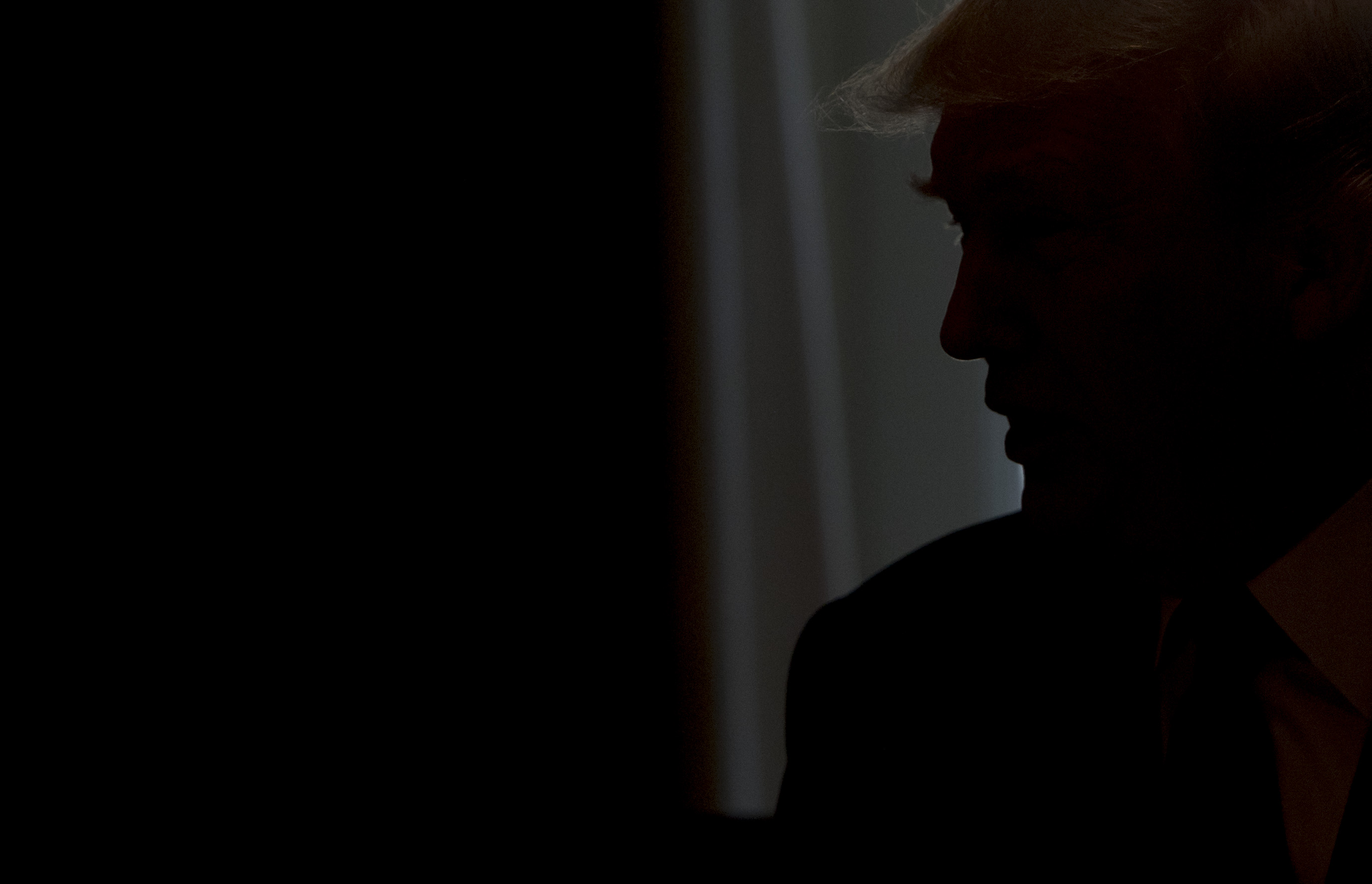A 'moral imperative' to deceive
The belief that facts and norms don't matter has become contagious


A free daily email with the biggest news stories of the day – and the best features from TheWeek.com
You are now subscribed
Your newsletter sign-up was successful
This is the editor's letter in the current issue of The Week magazine.
During the 2017 special election for a U.S. Senate seat in Alabama, progressive activists set up a fake Facebook page in ostensible support of Republican Roy Moore. The page, called Dry Alabama, praised Moore for proposing a complete ban on alcohol in the state — a false claim designed to depress his vote totals from moderate Republicans. Sounds like a Russian tactic, but activist Matt Osborne told The New York Times this week he had "a moral imperative to do this." Defeating Moore, an accused serial abuser of teenage girls, was so important, Osborne explained, that a bit of deception was justified. Dirty political tricks are, of course, not new, but the brazen defense of them on moral grounds is quite telling. There's a growing bipartisan conviction that virtually anything — lying, cheating, and spying — is justified because, well, the other tribe is so evil.
President Trump, of course, is the leading practitioner of the dark arts of deception, but his disdain for facts and norms is evidently infectious. When socialist superstar Rep. Alexandria Ocasio-Cortez (N.Y.) was recently questioned about her fuzzy math and exaggerated claims about Pentagon waste, she shot back, "There's a lot of people more concerned about being precisely, factually, and semantically correct than about being morally right." When newly seated Sen. Mitt Romney (R-Utah) called out Trump for divisive rhetoric, lack of "honesty and integrity," and low character, Republican colleagues chastised him for being too truthful. Evangelicals excuse Trump's serial adultery and unchristian bombast in the belief that he's serving a divine purpose by filling federal benches with anti-abortion judges. Were 4,000 Islamic terrorists really caught trying to cross the Mexican border? Will raising millionaires' taxes really pay for free everything? Who cares? When you're absolutely certain you're "morally right," facts and ethics are immaterial.
The Week
Escape your echo chamber. Get the facts behind the news, plus analysis from multiple perspectives.

Sign up for The Week's Free Newsletters
From our morning news briefing to a weekly Good News Newsletter, get the best of The Week delivered directly to your inbox.
From our morning news briefing to a weekly Good News Newsletter, get the best of The Week delivered directly to your inbox.
A free daily email with the biggest news stories of the day – and the best features from TheWeek.com
William Falk is editor-in-chief of The Week, and has held that role since the magazine's first issue in 2001. He has previously been a reporter, columnist, and editor at the Gannett Westchester Newspapers and at Newsday, where he was part of two reporting teams that won Pulitzer Prizes.
-
 How the FCC’s ‘equal time’ rule works
How the FCC’s ‘equal time’ rule worksIn the Spotlight The law is at the heart of the Colbert-CBS conflict
-
 What is the endgame in the DHS shutdown?
What is the endgame in the DHS shutdown?Today’s Big Question Democrats want to rein in ICE’s immigration crackdown
-
 ‘Poor time management isn’t just an inconvenience’
‘Poor time management isn’t just an inconvenience’Instant Opinion Opinion, comment and editorials of the day
-
 The billionaires’ wealth tax: a catastrophe for California?
The billionaires’ wealth tax: a catastrophe for California?Talking Point Peter Thiel and Larry Page preparing to change state residency
-
 Bari Weiss’ ‘60 Minutes’ scandal is about more than one report
Bari Weiss’ ‘60 Minutes’ scandal is about more than one reportIN THE SPOTLIGHT By blocking an approved segment on a controversial prison holding US deportees in El Salvador, the editor-in-chief of CBS News has become the main story
-
 Has Zohran Mamdani shown the Democrats how to win again?
Has Zohran Mamdani shown the Democrats how to win again?Today’s Big Question New York City mayoral election touted as victory for left-wing populists but moderate centrist wins elsewhere present more complex path for Democratic Party
-
 Millions turn out for anti-Trump ‘No Kings’ rallies
Millions turn out for anti-Trump ‘No Kings’ ralliesSpeed Read An estimated 7 million people participated, 2 million more than at the first ‘No Kings’ protest in June
-
 Ghislaine Maxwell: angling for a Trump pardon
Ghislaine Maxwell: angling for a Trump pardonTalking Point Convicted sex trafficker's testimony could shed new light on president's links to Jeffrey Epstein
-
 The last words and final moments of 40 presidents
The last words and final moments of 40 presidentsThe Explainer Some are eloquent quotes worthy of the holders of the highest office in the nation, and others... aren't
-
 The JFK files: the truth at last?
The JFK files: the truth at last?In The Spotlight More than 64,000 previously classified documents relating the 1963 assassination of John F. Kennedy have been released by the Trump administration
-
 'Seriously, not literally': how should the world take Donald Trump?
'Seriously, not literally': how should the world take Donald Trump?Today's big question White House rhetoric and reality look likely to become increasingly blurred
